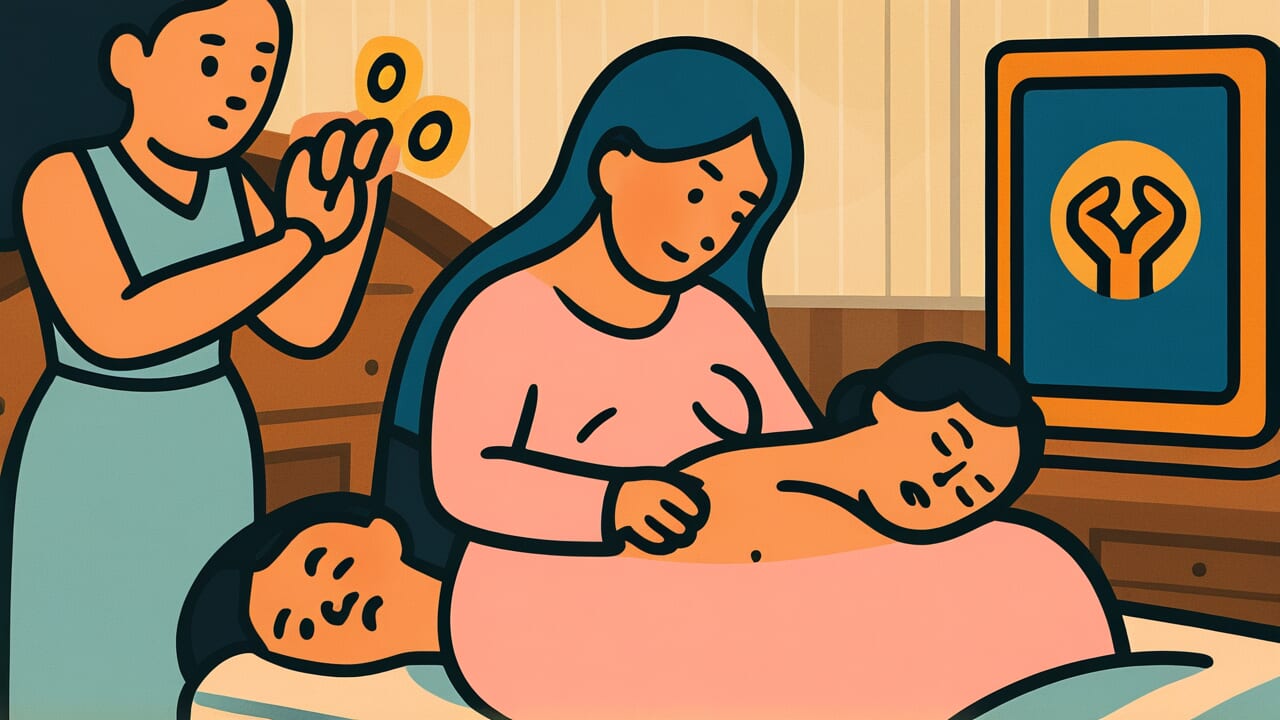How to Read “You can give birth to a child, but you cannot give birth to their heart”
Ko wa umu mo kokoro made wa umanu
Meaning of “You can give birth to a child, but you cannot give birth to their heart”
This proverb means that parents can create a child’s body, but they cannot shape their heart or personality exactly as they wish.
No matter how much love and care parents pour into raising their children, each child develops as an independent person with their own character.
Children don’t grow up to match their parents’ expectations or ideals perfectly.
This saying is mainly used when parents struggle with their child’s personality or behavior, or when children grow in unexpected directions.
When parents lament “I raised them so carefully” or “This isn’t what I expected,” this proverb reminds them that children aren’t possessions.
Children are separate human beings with their own hearts and minds.
Even today, when devoted parents worry about their children’s paths or personalities, these words carry important meaning.
The proverb reminds us of a simple truth: even between parent and child, you cannot control another person’s heart.
Origin and Etymology
There’s no established consensus about when this proverb first appeared in written records.
However, it was likely already widely used among common people during the Edo period.
The structure of the phrase is distinctive. The verb “to give birth” appears twice.
The first time it’s affirmative, the second time it’s negative as “cannot give birth.”
This contrast sharply highlights the boundary between what parents can and cannot give their children.
The idea that “you can birth the body but not the heart” reflects traditional Japanese views on child-rearing.
During times when Confucian thought was widespread, parents focused on raising children as successors to carry on the family.
Yet people also understood from experience that no matter how much parents wished, they couldn’t control their children’s fundamental character or heart.
This proverb likely emerged from people struggling with the gap between expectations and reality in parent-child relationships.
When parental wishes clashed with children’s individuality, people may have used these words to accept their children’s independent personalities.
Usage Examples
- I tried my best to raise them well, but you can give birth to a child, but you cannot give birth to their heart, so I have to respect my child’s choices
- It’s natural that things don’t go as parents expect, because you can give birth to a child, but you cannot give birth to their heart
Universal Wisdom
This proverb has been passed down because it captures the most fundamental conflict in parent-child relationships.
Parents create children from their own bodies. They carry them for ten months, give birth risking their lives, and care for them tirelessly.
Through this process, parents come to feel their children are part of themselves.
But children are beings with separate souls from their parents.
Even though they inherit their parents’ genes, they don’t automatically inherit their parents’ experiences or values.
Children have their own ways of feeling, thinking, and living.
Accepting this obvious truth is actually very difficult for parents.
Humans have a desire to control what they love and nurture.
This desire becomes especially strong in the closest relationship of parent and child.
Behind words like “I love you so much” or “This is for your own good,” there may lurk a wish to control the child.
This proverb understands this human nature and conveys an important truth.
Loving someone is different from dominating them. Giving birth to a child is separate from deciding their life.
Not losing sight of this boundary is what true love means.
When AI Hears This
Genes are completely copied from parent to child, yet why do personality and thinking become so different?
The key to this mystery lies in a mechanism called epigenetics.
While the DNA blueprint is indeed inherited, the switches that determine which genes to “read or not read” are almost completely reset at birth.
For example, even if a parent experienced famine and certain genes were switched on, the child starts with a blank slate.
This is biological wisdom, a mechanism that prevents parental environmental adaptations from becoming the child’s burden.
Even more interesting is that over 80% of human brain neural circuits are formed through postnatal experience.
At birth there are about 100 billion nerve cells, but how they connect depends entirely on environment.
Research shows that even identical twins with the same genes develop very different personalities when raised in separate families.
From a biological perspective, parents can provide the physical materials of the body but cannot hand over the blueprint for how to assemble those materials.
The heart is not a product of genes but a construction built from countless choices and experiences after birth.
The ancients perceived this biological truth without science.
Lessons for Today
This proverb teaches us the importance of respecting others’ independence.
This wisdom applies not just to parent-child relationships but to all human relationships.
When training subordinates at work, when teachers guide students, or even in friendships, we’re tempted to make others conform to our wishes.
We think “They’d be better if they did it this way” or “Why won’t they listen to me?”
But this proverb teaches that no matter how close the relationship, you cannot control another person’s heart.
What matters isn’t trying to change others, but recognizing their individuality.
Your values and theirs are naturally different. When results differ from expectations, that’s not failure.
It’s proof that the other person is walking their own path.
This understanding should lighten your burden. Put down the weight of trying to control everything and trust in others’ growth.
Such relationships become healthier and happier for everyone involved.



Comments